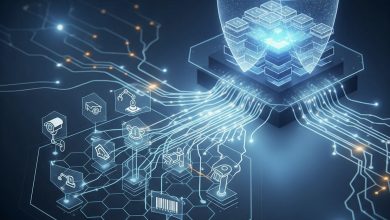They say that whatever you don’t know can catch you off-guard, while not knowing that you don’t know can cause you to completely falter and get into dire circumstances.
This bit of sage wisdom seems particularly applicable to many of today’s AI developers and AI researchers when it comes to their overall lack of awareness about AI and the law. You see, the odds are they don’t know that they don’t know about AI and the law.
Very few are cognizant that AI and the law are even relevant to their existence. All told, a rude and costly awakening is bound to surprise those in the AI realm for a woeful lack of attention to the latest advances in AI and the law.
Let’s fix that dilemma by unpacking the key impactful elements underlying AI and the law.
First, keep in mind that there are two major ways to construe the topic of AI and the law: (1) AI as applied to the law, (2) Law as applied to the field of AI. It is a twofer. Both of the perspectives entail a detailed intermixing of the foundations of AI and the fundamentals of the law and the legal domain.
Furthermore, the two co-joined viewpoints have direct consequences for anyone seriously involved in the conceiving of, designing, building, and deployment of AI systems.
Here’s why.
The act of applying AI to the legal domain has produced many cornerstone breakthroughs in the AI arena and will continue to do so. Whereas you might assume that using AI for doing legal tasks seems to be unremarkable, you’d be mistaken in that hasty presumption. Efforts to try and craft so-called robo-lawyers, robo-judges, and robo-jurors require extending AI precepts to greater and greater lengths.
For example, consider these key AI capacities:
Case-Based Reasoning (CBR)
This has much of its roots in the application of AI to the law. This makes abundant sense since legal work integrally involves finding and leveraging prior legal cases. The AI mechanisms and techniques underpinning legal case analyses are readily reused for any situation or domain that has case-based needs. The legal domain requires it, while other domains often relish reusing the invented AI capabilities, such as in the medical, financial, and numerous other disciplines.
Argumentation
Here is another tenet at the core of AI and the law. We all realize that attorneys are essentially paid to devise cogent arguments. AI systems for legal efforts are steeped in legal argumentation mechanisms. Those same structures and processes can be reworked for non-legal domains, including for use when devising interactive conversational dialogues with humans. The AI might proffer alternative ways to think about a problem when aiding human problem solvers.
AI Search Techniques
AI search teniques provide an efficient and effective means of examining a large corpus of legal documents and court cases. These same state-space search algorithms are used in other domains such as those impressive AI-powered chess-playing systems. In a somewhat akin manner, the computational search across an expansive legal argumentation space has embellished relevant techniques for all of AI.
Natural Language Processing (NLP)
This technology continues to be a crucial capability in the legal domain. As such, some quite interesting twists and turns come to play when trying to apply NLP to the law. These challenges of interpreting laws and regulations are inextricably forging new ways to enhance existing NLP facilities in general.
Machine Learning (ML)
ML is the darling of contemporary AI and likewise has become vital in the legal field. For example, the use of ML computational pattern matching allows making predictions about the outcomes of court cases. This provides an avid testbed for exploring the range of Machine Learning and Deep Learning (DL) technologies. In turn, new insights are fed back into the general frameworks for composing ML/DL-based AI systems.
Those are but a few of the ways in which AI is being applied to the law. Notice that there is a kind of two-way street between the application of AI to the law and the consequent infusion of novel approaches for AI of all kinds. When experts in AI and the law push at the boundaries of AI, you can bet that the discovered AI innovations will subsequently and eagerly be ingrained into the base of AI techniques and overarching AI-making tools.
We next turn to the other side of the AI and the law coin, focusing on the law as it is applied to AI.
This is where those that are rapidly churning out AI systems are apt to really see their goose cooked if they don’t keep up with what is happening. Up until recently, AI developers could pretty much scot-free create AI systems and nary have a concern about the societal ramifications of their AI concoctions. Not anymore. The law is coming for those who pell-mell rush AI into use and are not mindfully making sure that the AI meets both legal and ethical considerations.
You would almost have to be living in a remote cave to not already have heard about the rising concerns over AI that have embedded biases and inequities. Prominent examples include the use of facial recognition that insidiously entrenches racial biases, and similarly the use of sour NLP that encompasses all manner of untoward biases when generating verbal utterances.
As a result of the tsunami of unethical AI, a large-scale movement has been taking place to establish AI Ethics principles, including notably that the United Nations passed an Ethical AI agreement last year that nearly 200 countries worldwide have pledged to uphold.
AI developers and AI researchers that fail to abide by AI Ethics precepts are bound to find themselves incurring reputational disgrace for unethical AI that they released into society. The chances too are that the AI would be potentially banned from usage or would at least be avoided by the intended users, thus the AI system would undoubtedly languish and fail to achieve whatever revenue-generating goals were initially envisioned.
The real kicker though is that the long arm of the law could come after the AI builders that crossed beyond ethical AI and landed their AI into the unsavory clutches of illegal or unlawful acts. I would dare say that very few AI developers have much of a clue about the latest AI-related governance laws that have been enacted or that are on their way to being placed onto the books.
Be aware that laws about AI are burgeoning and creating a veritable minefield of legal means to snag AI builders, doing so in a multi-jurisdictional manner such as:
· International laws about AI
· Federal laws about AI
· State laws about AI
· Local laws about AI
Let’s briefly reflect on this.
Suppose an AI software engineer opts to make an AI system that they bring to the market and do so with high expectations. Unbeknownst to them, the AI might be legally violating the law in the hometown where the AI builder lives.
If not there, the AI might contain illegal actions that are covered by state laws or possibly federal laws. And then if the AI is used outside the borders of a given country, it is equally possible that some international AI laws of other countries are being violated by the AI system.
The seemingly blissfully unaware AI developer might soon get embroiled in a series of legal actions that arise from all angles and usurp every dollar they’ve earned on their AI (and more big bucks too when the full extent of the legal damages get tailed up).
And, now you know
Some AI developers are prone to keeping their heads down and know only about the coding that they are daily grinding out. They don’t think about the ramifications of their AI system in a broader context. The best aspirations for the AI can be completely gutted if the AI either undercuts AI Ethics principles or gets mired in legal wranglings that it is ostensibly performing illegal acts.
You don’t want to end up spending all of your development time sitting in courtrooms and trying to defend your AI system. It seems likely that you also don’t want to lose costly lawsuits that your AI abridged civil rights. For darned sure you certainly don’t want to go to jail because your AI wrongfully violated criminal laws.
The gist is that the twofer of knowing about AI and the law has a lot of value to anyone and everyone that touches upon AI. There are many important insights and AI breakthroughs that are being surfaced due to applying AI to the law.
Probably the more pressing qualm for most AI developers is that they are unaware of how the multitude of new laws are boxing them in and they will someday potentially be hauled into court for the fruits of their AI labor.
Better to know what you don’t know, and get into gear by finding out about it, rather than being hopelessly in the dark and having all of your hard-earned AI endeavors turned around on you as you abruptly discover that the law doesn’t cater to what your AI does.
That in a nutshell summarizes the value of AI in the law.




